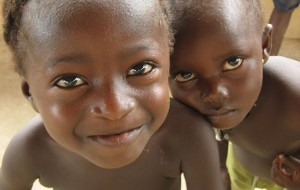Water Supply in Three Villages
Sierra Leone is a post-conflict country in Western Africa of roughly 72,000 square kilometres and over 6 million inhabitants. About 60% of the population are estimated to live under the poverty line, with a concentration in rural areas.(approximately 80% in rural 20 in urban areas in 2004). Agriculture represents 45% of the GDP and employs 2/3 of the population, albeit with very low production results. According to the UN Water Global Annual Assessment of Sanitation and Drinking Water (GLAAS) carried out in 2010, Sierra Leone is off-track on both indicators and very far from meeting the MDGs. The latest figures available from WHO, indicate that more than 40% of the population in Sierra Leone do not have access to clean drinking water, and about 60% do not have access to adequate sanitation. The GLAAS stated that 51% of the population only have access to unimproved sources of drinking water, and that 24% of the population practice open defecation with all the health risks involved.
This project addresses the need for access to clean water, as well as improved knowledge of sanitation and hygiene. In collaboration with partner EWB-SL, the project constructs hand-dug wells in three villages; Yabaima, Bandama and Loiuma, all located in the Kenema district. Through a CLTS approach, the community is engaged in improved knowledge of basic sanitation and hygiene, which will significantly reduce the risks for water-borne or sanitation-related diseases, and improve the health and living conditions of the local communities.
This project ensures basic rights for access to clean water for an approximate total of 750 people in the rural areas of Sierra Leone.
The project contributes to clean water and sanitation in compliance with the current UN Sustainable Development Goals.
Specifications
- Project No.: 046
- Categories: Water and Sanitation, West Africa, Sierra Leone
- Budget: 82.000 DKK
- Project Manager: Hans Østergaard
- Partner Organization: EWB Sierra Leone
